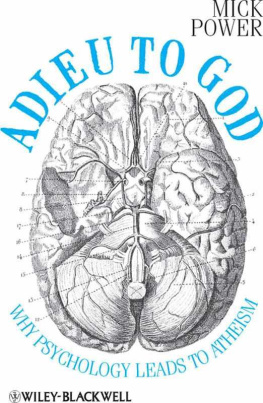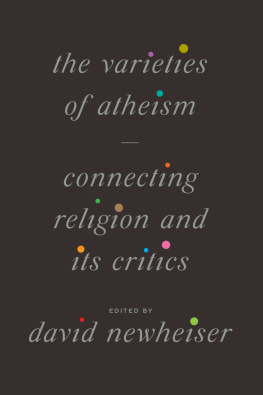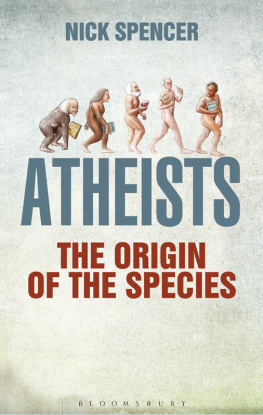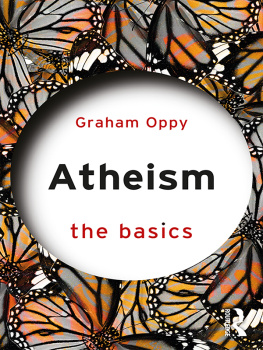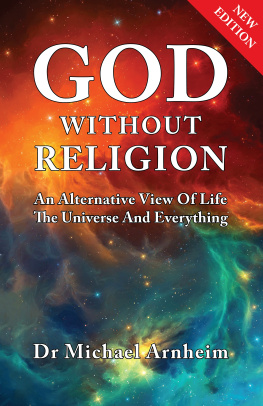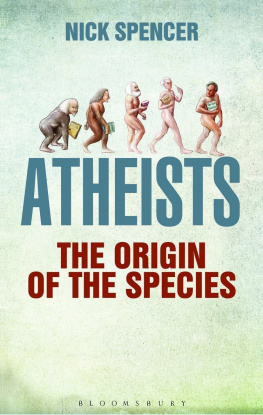Contents
This edition first published 2012
2012 Mick Power
Wiley-Blackwell is an imprint of John Wiley & Sons, formed by the merger of Wileys global Scientific, Technical and Medical business with Blackwell Publishing.
Registered Office
John Wiley & Sons Ltd, The Atrium, Southern Gate, Chichester, West Sussex, PO19 8SQ, UK
Editorial Offices
The Atrium, Southern Gate, Chichester, West Sussex, PO19 8SQ, UK
350 Main Street, Malden, MA 02148-5020, USA
9600 Garsington Road, Oxford, OX4 2DQ, UK
For details of our global editorial offices, for customer services, and for information about how to apply for permission to reuse the copyright material in this book please see our website at www.wiley.com/wiley-blackwell .
The right of Mick Power to be identified as the author of this work has been asserted in accordance with the UK Copyright, Designs and Patents Act 1988.
All rights reserved. No part of this publication may be reproduced, stored in a retrieval system, or transmitted, in any form or by any means, electronic, mechanical, photocopying, recording or otherwise, except as permitted by the UK Copyright, Designs and Patents Act 1988, without the prior permission of the publisher.
Wiley also publishes its books in a variety of electronic formats. Some content that appears in print may not be available in electronic books.
Designations used by companies to distinguish their products are often claimed as trademarks. All brand names and product names used in this book are trade names, service marks, trademarks or registered trademarks of their respective owners. The publisher is not associated with any product or vendor mentioned in this book. This publication is designed to provide accurate and authoritative information in regard to the subject matter covered. It is sold on the understanding that the publisher is not engaged in rendering professional services. If professional advice or other expert assistance is required, the services of a competent professional should be sought.
Library of Congress Cataloging-in-Publication Data
Power, Michael J.
Adieu to God : why psychology leads to atheism / Mick Power.
p. cm.
Includes bibliographical references and indexes.
ISBN 978-0-470-66993-8 (cloth) ISBN 978-0-470-66994-5 (pbk.)
1. Psychology, Religious. 2. Psychology and religion. I. Title.
BL53.P69 2012
200.19dc22
2011015219
A catalogue record for this book is available from the British Library.
This book is published in the following electronic formats: ePDFs 9781119950875;
Wiley Online Library 9781119950868; ePub 9781119979951; eMobi 9781119979968
To Irina
Preface
The release of Stephen Hawkings book The Grand Design in 2010 witnessed the expected reactions from the religious community. As the worlds greatest living scientist, and probably the only one to have been given a starring role in an episode of The Simpsons, Stephen Hawking had previously seemed to play dice with the public and with whether or not God was necessary. Hawking had finally declared, about the Big Bang at the beginning of the (current) Universe, It is not necessary to invoke God to light the blue touch paper and set the Universe going. The United Kingdoms Chief Rabbi, Lord Sacks, responded by stating that science is about explanation, but religion is about interpretation. This distinction between the magisterium of science and the magisterium of religion, as the great evolutionist Stephen Jay Gould referred to them, is of course nonsense. Absolute nonsense. To propose that science is about the how, but religion is about the why, is to misunderstand science completely. Psychology is a science, which we can define as follows: The science of psychology is the how and why of mental life and behaviour. Psychology and adjoining areas such as anthropology, philosophy, psychiatry, and sociology have much to say about the how and why of religion. These magisteria are not non-overlapping in any sense. From the Copernican revolution onwards, the Christian Church has been fighting a losing rearguard action against the major advances in science, enough to have led many major sociologists to predict its death. However, from a psychological perspective religions offer far more than science does, because the promise of eternity, paradise, and damnation for your enemies is guaranteed to win over a lot of people, especially on a bad day. As a psychologist, therefore, I believe it essential to understand why all cultures in all epochs have created religious systems and beliefs in the supernatural, in order to understand why in many parts of the world, including the United States, religion is gaining in strength and in followers, despite the advances in the physical and biological sciences. How can the majority of Americans believe in creationism and intelligent design instead of evolution?
Religions are social systems that have been developed by people. These systems are typically based on the reported religious experiences of charismatic leaders, and are therefore ultimately about universal psychological experiences that have become incorporated into the 30 000 or so known religions, plus the other 100 000 that have yet to be invented in response to the special experiences of future charismatic leaders. Each religious system will of course have you think that it is the one true religion and that you are to forget the tens of thousands of other religions as if they did not exist. But the existence of so many contradictory religious systems can only be explained by psychological and social explanations that offer interpretations as to why we, as a human species, are so vulnerable to giving reality to the spectres in our minds.
In writing a book about the psychology of religion, I think it important to declare that although I became an atheist when I was 16 I was in fact attending a Catholic grammar school at the time, Saint Phillips, in Birmingham. I was a disputatious student that the governing Catholic Oratorian Fathers must have tired of regularly. Some people would say that nothing has changed. However, I look back now with some gratitude that at least the Oratorians in these modern times allowed discussion and dispute, rather than handing me over to the Dominicans of the Middle Ages when I would have been put through the full Inquisition with torture followed by being burnt at the stake. Anyway, I always suspected that there were one or two latent atheists in their midst, not to mention those who had reached their own conclusions about Catholic vows of celibacy. However, I am not the aggressive atheist type that frightened off poor Cardinal Karl Jasper from joining Pope Benedict XVI on his recent visit to the United Kingdom. My mother is a devout Catholic, my wife believes in a spiritual world, and I have many friends, students, and clients who practice a wide range of different religions. In fact, when I read the aggressive atheists like Richard Dawkins and Christopher Hitchens, sometimes I agree that they can sound too aggressive even to a fellow atheist. I have an empathy with most (though not all) religious belief and with most (though not all) religious believers. My intention in writing this book is to convey something of this empathy through an understanding of religious experience and belief but without ever sounding patronizing or sneering, even though my belief is that psychology (with help from philosophy, anthropology, sociology, physics, biology ) offers a far more powerful explanation than any religious system ever will.
Well, it is not just the Oratorians who ran Saint Phillips that I need to acknowledge and thank in the writing of this book, but also the many school friends who, both at that time and in the many years since, have been astute sparring partners. So thank you, Tony Manville, Paul Shobrook (and your brother Tony, now an Anglican monk), Mick Quille, Mick Drury, and Mick Garvey. From university days I would especially like to thank Charlie Sharp, Andy MacLeod, Lorna Champion, Tim Dalgleish, and Jonathan Cavanagh for their inspiring discussions. My son Liam, now studying philosophy at St Andrews University, is an able match for all of us. I would especially like to thank Charlie Sharp, Andy MacLeod and Kate Loewenthal who read and commented on an earlier draft of the book. I would also like to thank Andrew Peart, my editor at Wiley, who responded with unbelievable enthusiasm the same day I sent him the proposal for the book. We share an atheists love of Iona, so I discovered. Finally, my thanks to Irina, who also loves Iona, for being challenging from start to finish, who has thrown every argument for the existence of god and God at me regularly, and who, once she accepted that she had escaped Soviet atheism only to marry a Western atheist, has been totally supportive of this endeavour throughout.
Next page
